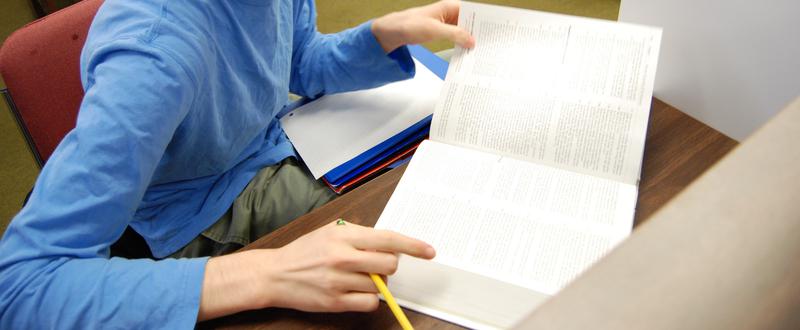

If you've ever struggled with a homework assignment or fretted over an exam, might have pondered ways to improve your study habits and techniques. Perhaps you went and researched the topic, unearthing a world of articles, blog posts, and books in the process.
However, unless you're an aspiring psychologist or neuroscientist, you've probably gotten a lot of advice without hearing much of the proven science behind it.
If that's you, then you'll benefit enormously from UC San Diego's online course, Learning How to Learn: Powerful mental tools to help you master tough subjects.
Now one of the most popular MOOCs worldwide, it attracted more than 300,000 students to its four-week course in just its first two sessions alone (with many tens of sessions offered since).
Learning is a science
Learning How to Learn is uniquely successful because it does one thing most other authors and lecturers about the subject don't. It drops science. A lot of science.
You'll watch a video, learn a bit about the actual biological mechanisms behind learning, and receive advice that you can act on now that will noticeably improve how efficiently and effectively you learn. There's no fluff, just well reasoned advice based on scientific evidence.
Inquiring minds will also find no lack of further reading materials. Seldom is there a video or module without several links to research articles and sources.
The most important thing you'll learn from this course
Without spoiling too much, some of the best teachings from this course revolve around forming good habits.
Early in the course, you'll learn this bit of advice that I practice daily now: to do or learn something difficult, start.
Research shows that when we embark on a hard task, we trigger within ourselves a form of anxiety that actually activates our pain centers. Our natural response tells us to avoid this pain.
As you might know from experience, however, avoidance only feels good in the short run. Every minute we spend on Netflix, YouTube, or Facebook is another minute we spend kicking the can on facing down the difficult task ahead. Procrastination makes for little progress.
So what does science tell us we should do in this case?
Start.
All it takes is 15-20 minutes of pushing through a difficult exercise before the anxiety we experience begins to dissipate and fade. It's simple enough as a bit of advice that I've made it a habit and cast aside procrastination for good. Now you can as well.
The other important things you'll learn
If you can get over procrastination, then you'll already be reallocating a lot of your time to learning. That's a fantastic start, but there's another 90% of this course that teaches you how to focus your learning.
One concept I found particularly intriguing is that of the illusion of competency. Simply put, you gain an illusion of competency when you find yourself recalling concepts and information easily so you think you've gained mastery.
In reality, you've only skimmed the surface. There's a lot of material you haven't fully learned or have learned with faults and errors in process and memory. If you've ever gone into a quiz or test thinking you were hot stuff only to leave the room feeling crushed, what you may have experienced is this phenomenon.
Related to this is this tidbit of advice: test yourself. Test yourself against a glossary of terms or a deck of flashcards and you'll more easily discover mistakes in the knowledge you formed earlier. Correct them quickly and you'll make substantial strides towards mastery.
I'd be remiss to recap these teachings without mentioning that one of the very first things this course stresses is sleep. Getting a good night's sleep predicates everything else you'll learn in this course.
An inspiration
This MOOC is taught by Prof. Barbara Oakley, a Professor of Engineering at University of Oakland and a leader in the field of engineering education and teaching.
She wasn't always in engineering and the sciences. Her first degree was a Bachelor's in Slavic Languages. Then she headed off to the army and when she returned,
Oakley decided to challenge herself and see if her brain, more used to the study of languages, could be 'retooled' to study mathematical subjects.
Retool her brain she did, earning a B.S. in Electrical Engineering and later a Masters and Ph.D. in the fields of computational and systems engineering.
If you want to learn how she did it, take her course, Learning How to Learn and read her book, A Mind for Numbers, and change the way you learn forever.
OpenCourser helps millions of learners each year. People visit us to learn workspace skills, ace their exams, and nurture their curiosity.
Our extensive catalog contains over 50,000 courses and twice as many books. Browse by search, by topic, or even by career interests. We'll match you to the right resources quickly.
Find this site helpful? Tell a friend about us.
We're supported by our community of learners. When you purchase or subscribe to courses and programs or purchase books, we may earn a commission from our partners.
Your purchases help us maintain our catalog and keep our servers humming without ads.
Thank you for supporting OpenCourser.

